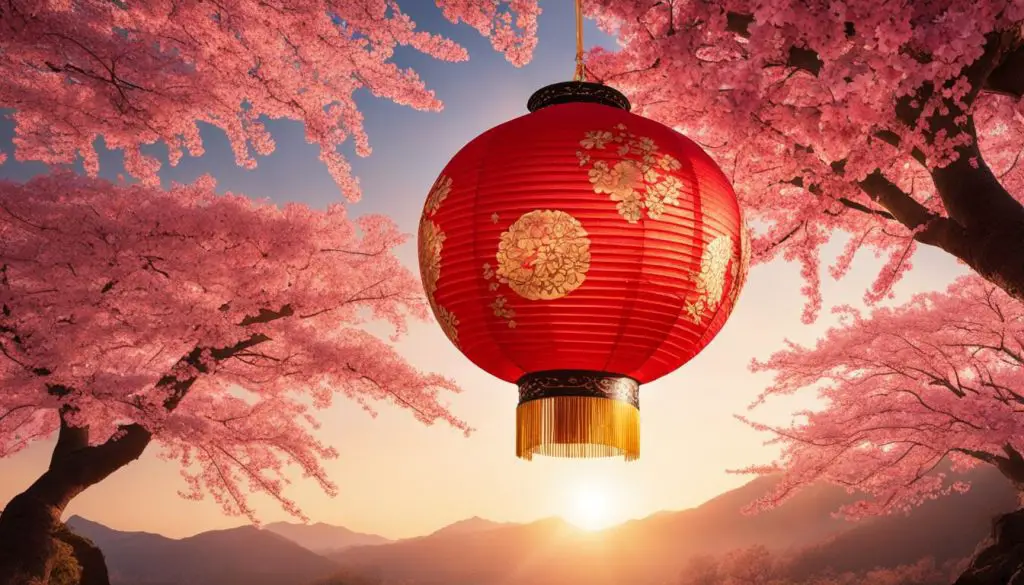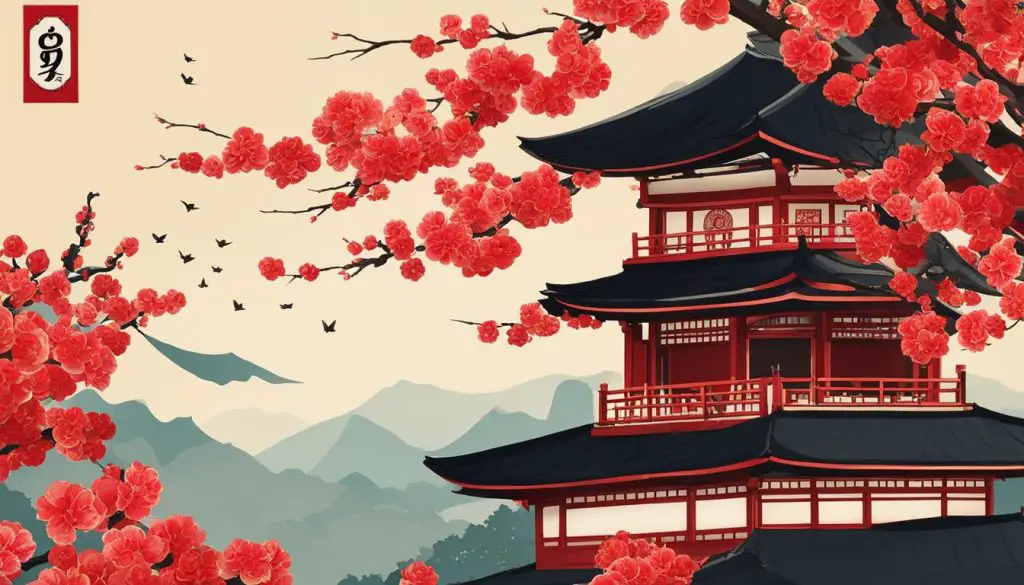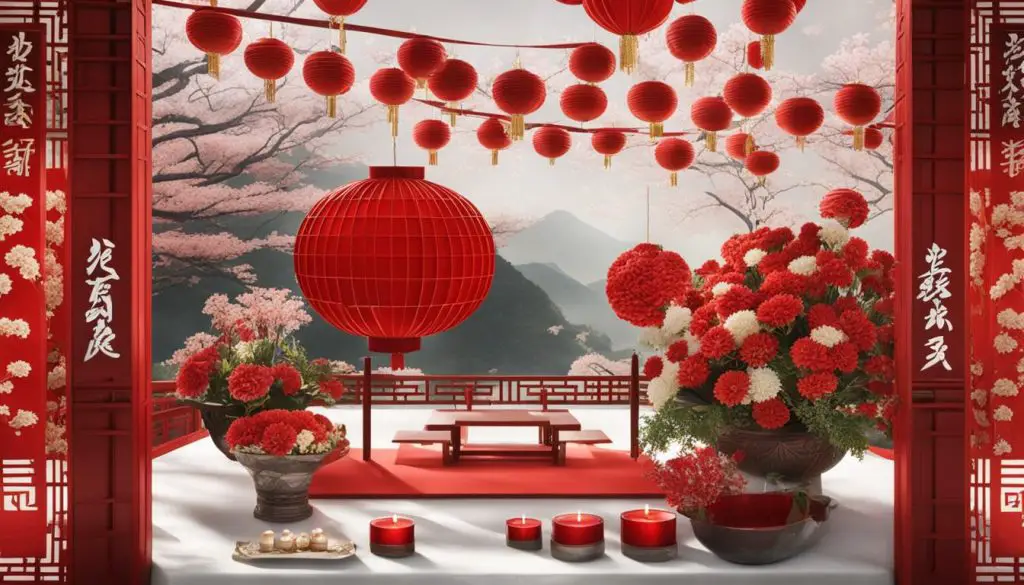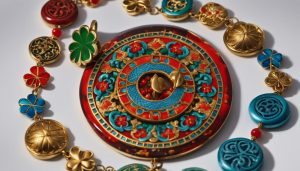In Japanese culture, certain numbers hold significant meanings and are believed to bring good luck. Understanding the cultural significance of these numbers provides insight into the beliefs and superstitions of the Japanese people.
Contents
- 1 The Significance of Number 3 in Japanese Culture
- 2 The Cultural Significance of Number 4 and 7
- 3 Luck and Symbolism of Number 8 in Japanese Culture
- 4 The Auspicious Number 9 in Japanese Culture
- 5 Lucky Numbers in Japanese Weddings
- 6 Luck and Superstitions in Entrance Exams
- 7 Conclusion
- 8 FAQ
- 8.1 What numbers are considered lucky in Japanese culture?
- 8.2 Which number is associated with harmony and balance in Japanese tradition?
- 8.3 Why is the number 4 considered unlucky in Japan?
- 8.4 Why is the number 7 considered lucky in Japan?
- 8.5 Why is the number 8 considered lucky in Japanese culture?
- 8.6 Is the number 9 considered lucky in Japan?
- 8.7 What numbers are considered lucky for weddings in Japanese culture?
- 8.8 Are there any superstitions surrounding entrance exams in Japan?
- 9 Source Links
Key Takeaways:
- Numbers in Japanese culture have symbolic meanings and are associated with luck.
- Number 3 represents harmony, balance, and completeness in Japanese tradition.
- Number 4 is considered unlucky due to its association with death, while number 7 is believed to bring good fortune.
- Number 8 is highly regarded as a lucky number in Japan and represents prosperity and abundance.
- Number 9 has negative connotations but is still used in certain auspicious contexts.
The Significance of Number 3 in Japanese Culture
In Japanese culture, numbers hold profound meanings and symbolism, and one number that stands out is 3. This number carries a special significance and is deeply ingrained in various aspects of Japanese tradition and spirituality.
In Shintoism, the indigenous religion of Japan, the concept of “Mitsugiri” revolves around dividing offerings into three parts, symbolizing harmony and balance. This practice is believed to bring good luck and ensure the well-being of individuals and communities.
Buddhism, another influential religion in Japan, also associates great importance with the number 3. The “Three Jewels” – Buddha, Dharma, and Sangha – serve as the pillars of the faith and represent the path to enlightenment. Buddhists believe that embracing these three components leads to spiritual completeness and liberation.
| Symbols of Number 3 in Japanese Culture | Meaning |
|---|---|
| Dividing offerings into three parts | Harmony and balance |
| The “Three Jewels” in Buddhism | Spiritual completeness |
| Usage in festivals and linguistic expressions | Celebration and cultural significance |
Furthermore, the number 3 is celebrated in various festivals and cultural events throughout Japan. One such occasion is “Kodomo no Hi” or Children’s Day, where families display carp-shaped koinobori flags in sets of three to represent good luck, strength, and success for their children.
Moreover, the number 3 is deeply embedded in the Japanese language. Expressions like “mitsu yuki” (a group of three friends) and “mitsu no kao” (a person with three faces) showcase the linguistic significance of the number and its cultural implications.
The Cultural Significance of Number 4 and 7
In Japanese culture, numbers hold special meanings and are often associated with luck or superstition. The number 4 is considered unlucky due to its phonetic similarity to the word for death. This belief has led to the avoidance or substitution of the number 4 in various aspects of daily life. For example, many buildings in Japan do not have a fourth floor, and some hotels and hospitals skip room numbers with the digit 4.
On the other hand, the number 7 is considered lucky in Japanese culture. It is believed to bring good fortune and is associated with positive outcomes. The reason behind this belief lies in the phonetic similarity between the number 7 and the word for “life.” As a result, the number 7 is often celebrated and used in various cultural references.
“In Japan, the number 4 is often associated with death, while the number 7 is considered lucky. These superstitions and beliefs have a significant impact on daily life and cultural practices.”
One famous example of the number 7’s cultural significance is the “Shichi-Go-San” festival, held on November 15th. This festival celebrates the growth and well-being of children who have reached the ages of 3, 5, and 7. Families dress up their children in traditional attire and visit shrines to pray for their future happiness and good health.
Overall, the cultural significance of numbers in Japan highlights the intricate beliefs and superstitions that shape daily life. The avoidance of the number 4 and the celebration of the number 7 showcase the deep-rooted connections between numbers, luck, and cultural practices in Japanese society.
Luck and Symbolism of Number 8 in Japanese Culture

In Japanese culture, certain numbers hold great significance and are believed to bring good luck. One such number is 8. In Japan, the number 8 is considered highly auspicious and is associated with financial success and abundance. This belief is rooted in the pronunciation of the number in Japanese, which sounds similar to the word for prosperity.
The cultural significance of the number 8 can be seen in various aspects of Japanese society. For example, having a phone number with multiple eights is considered fortunate and is believed to attract wealth and good fortune. In business, the number 8 is often sought after, with many companies incorporating it into their branding or product names to signal prosperity and success.
Furthermore, the number 8 is celebrated in personal contexts as well. People often choose auspicious dates to start new ventures or hold important events, and dates with a prominent number 8 are highly favored. Whether it’s a wedding, a business launch, or a significant milestone, the number 8 is believed to bring luck and positive energy.
The Symbolism of Number 8 in Japanese Culture
The symbolism of the number 8 goes beyond financial success. It is also associated with balance and harmony. In the traditional Japanese art of flower arrangement, known as ikebana, the arrangement typically consists of eight elements. This practice reflects the belief that the number 8 represents completeness and unity.
Additionally, the number 8 holds deep cultural significance in Japan’s history and mythology. The eight-fold path of Buddhism, known as the Noble Eightfold Path, serves as a guiding principle for moral conduct and spiritual development. This connection to Buddhism further enhances the positive symbolism associated with the number 8.
In conclusion, the number 8 is regarded as a lucky number in Japanese culture, symbolizing financial success, abundance, and harmony. Its positive connotations make it particularly sought after in business and personal contexts, where it is believed to bring good fortune and prosperity. The cultural beliefs surrounding the number 8 showcase the deep-rooted superstitions and traditions that continue to shape Japanese society.
The Auspicious Number 9 in Japanese Culture
In contrast to many other cultures, the number 9 is not considered lucky in Japan. The Japanese word for “nine” is similar to the word for “torture and suffering,” and as a result, the number is associated with negative connotations. However, the number 9 is still used in some auspicious contexts, such as the celebration of “Kuromatsu” for longevity.
In Japanese culture, numbers hold deep symbolic meanings, and the number 9 is no exception. Despite its negative connotations, the number 9 is still considered significant in certain circumstances. For example, during the “Kuromatsu” celebration, which is held to wish for a long and healthy life, a traditional arrangement of pine branches and the number 9 is displayed. This signifies the hope for longevity and well-being.
“The number 9 is not considered lucky in Japan, but it is still used in some auspicious contexts, such as the celebration of ‘Kuromatsu’ for longevity.”
In addition to the “Kuromatsu” celebration, the number 9 also has relevance in the world of sports. In the game of baseball, the number 9 is often associated with star players who excel on the field. This tradition dates back to the 1930s when Babe Ruth, a famous American baseball player, wore the number 3 on his jersey. In Japan, players who exhibit exceptional skill and talent are often given the number 9 as a sign of respect and honor.
The Auspicious Number 9 in Japanese Culture
Despite its negative connotations, the number 9 continues to hold significance in Japanese culture. Whether it’s the celebration of longevity or the recognition of exceptional talent, the number 9 serves as a reminder that cultural beliefs and superstitions can vary greatly from one society to another.

| Symbolism | Meaning |
|---|---|
| Longevity | The number 9 is associated with the celebration of “Kuromatsu” for longevity. |
| Talent | In the world of sports, the number 9 is often given to players who exhibit exceptional skill and talent. |
| Contradictory | While the number 9 is generally considered unlucky, it is still used in certain auspicious contexts. |
Lucky Numbers in Japanese Weddings
In Japanese culture, weddings hold great significance and are steeped in tradition. From the choice of auspicious dates to the symbolism behind various elements, every detail is considered to ensure a harmonious and prosperous union. Numbers, in particular, play a crucial role in Japanese weddings, with certain numbers considered lucky and others to be avoided.
One of the most preferred days for a wedding in Japan is “大安” (taian), which translates to “great peace.” This day is believed to be particularly peaceful and harmonious, making it an ideal choice for starting a new chapter in life. Couples often consult the traditional Japanese calendar to find suitable dates that are deemed fortunate and conducive to a long-lasting marriage.
However, not all numbers are regarded as lucky in Japanese weddings. Certain even and divisible numbers, such as 4 and 6, are often avoided due to their association with potential divorces. The number 4 sounds similar to the word for death in Japanese, so it is considered unlucky and best avoided. Similarly, the number 6 can be seen as a homophone for the word “roku,” which means suffering or hardship. To ensure a positive start to their married life, many couples opt to avoid these numbers in their wedding planning.

Gift Money Amounts
In addition to the choice of dates, gift money is another aspect of Japanese weddings that is influenced by superstitions surrounding lucky numbers. Known as “結婚内祝い” (kekkon uchiharai), guests are expected to provide monetary gifts to the newlyweds to help them start their life together. The amount of gift money is carefully considered, with certain numbers being more auspicious than others.
| Number | Symbolism |
|---|---|
| 30,000 yen | Representing celebration and good luck |
| 50,000 yen | Symbolizing a joyful and prosperous future |
| 100,000 yen | Wishing the couple a lifetime of happiness and abundance |
These amounts are considered fortunate and are often given in crisp, new bills to signify a fresh start. Conversely, certain numbers, such as 40,000 yen or 400,000 yen, are typically avoided due to the association with the number 4, which is considered unlucky. Couples may also receive gift money in amounts ending in 1 or 9, as these numbers are believed to bring good fortune and blessings.
By incorporating lucky numbers into their wedding planning, Japanese couples aim to increase their chances of a happy and prosperous marriage. Whether it’s choosing an auspicious date or receiving gift money in fortunate amounts, these customs reflect the deep-rooted belief in the power of numbers and their symbolic significance in Japanese culture.
Luck and Superstitions in Entrance Exams
Entrance exams in Japan are high-stakes events that determine the future of students. With such pressure to succeed, it’s no surprise that superstitions and beliefs surrounding luck play a significant role in exam preparation. Japanese students go to great lengths to avoid attracting bad luck and to maximize their chances of success.
One common superstition is the avoidance of words associated with failure. For example, the word “落ちる” (ochiru), meaning “to fall,” is considered unlucky and is often replaced with alternative phrases. Similarly, the word “滑る” (suberu), meaning “to slip,” is also avoided due to its negative connotations. Students meticulously choose their words to ensure they don’t unintentionally attract bad luck during the exam period.
During the entrance exam season, snacks with lucky messages become popular among students. These snacks often come with encouraging phrases or words of good fortune, providing a sense of comfort and optimism during the stressful time. It’s not uncommon to see students enjoying these treats while studying or taking breaks from intense study sessions.
“Luck is what happens when preparation meets opportunity.” – Seneca
Visiting shrines to pray for success is another common practice among students. Shinto shrines, in particular, are believed to house powerful spirits that can grant wishes and protect individuals from bad luck. Many students visit shrines before their exams, seeking blessings and divine intervention for a successful outcome. This ritual provides a sense of comfort and reassurance during a time of high stress and uncertainty.
Superstitions and rituals
Superstitions and rituals surrounding entrance exams in Japan are deeply ingrained in the culture. They serve as a way for students to feel in control of their destiny and to stack the odds in their favor. While some may dismiss these beliefs as mere superstitions, they hold great significance for those who partake in them and can provide a sense of comfort and confidence during a critical period in their lives.
| Superstitions and Practices | Meaning |
|---|---|
| Avoiding words associated with failure | Preventing bad luck |
| Snacks with lucky messages | Providing comfort and optimism |
| Visiting shrines to pray for success | Seeking divine intervention and blessings |
Conclusion
Numbers hold deep cultural significance in Japanese society. Understanding the meaning behind these numbers provides insights into the rich traditions and superstitions of Japanese culture. Certain numbers are believed to bring good luck and represent various symbols and beliefs.
In Japanese culture, the number 3 holds a special place. It is associated with harmony, balance, and completeness. The number 4, on the other hand, is considered unlucky due to its association with death. However, the number 7 is celebrated for its phonetic similarity to the word for “life” and is believed to bring good fortune.
The number 8 is highly regarded as a lucky number in Japan. It sounds similar to the word for prosperity and is associated with financial success and abundance. In contrast, the number 9 is not considered lucky due to its association with negative connotations.
Whether it’s in weddings, festivals, or everyday life, the importance of numbers in Japan is undeniable. They play a role in auspicious dates for weddings, gift money amounts, and even entrance exams. Numbers in Japanese culture truly embody the beliefs and superstitions of the Japanese people.
FAQ
What numbers are considered lucky in Japanese culture?
The numbers 3, 7, and 8 are considered lucky in Japanese culture.
Which number is associated with harmony and balance in Japanese tradition?
The number 3 is associated with harmony, balance, and completeness in Japanese tradition.
Why is the number 4 considered unlucky in Japan?
The number 4 is associated with death and is considered unlucky in Japanese culture.
Why is the number 7 considered lucky in Japan?
The number 7 is considered lucky in Japan due to its phonetic similarity to the word for “life.”
Why is the number 8 considered lucky in Japanese culture?
The number 8 is considered lucky in Japanese culture because it sounds similar to the word for prosperity and is associated with financial success and abundance.
Is the number 9 considered lucky in Japan?
No, the number 9 is not considered lucky in Japan due to its similarity to the word for “torture and suffering.”
What numbers are considered lucky for weddings in Japanese culture?
The most preferred day for a wedding is “大安” (taian), which is believed to be a peaceful day. Even and divisible numbers like 4 and 6 are often avoided as they are associated with potential divorces.
Are there any superstitions surrounding entrance exams in Japan?
Yes, certain words associated with failure are avoided, and snacks with lucky messages are popular during entrance exam season. Many people also visit shrines to pray for success.






